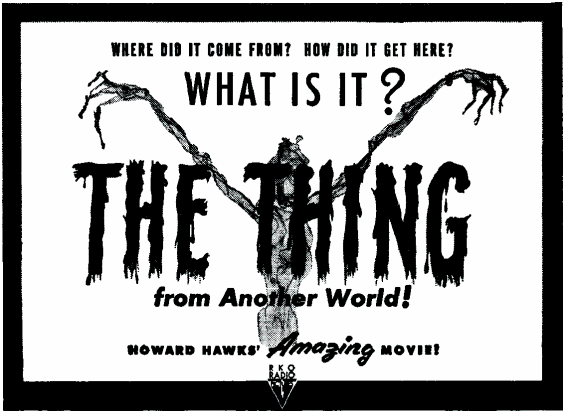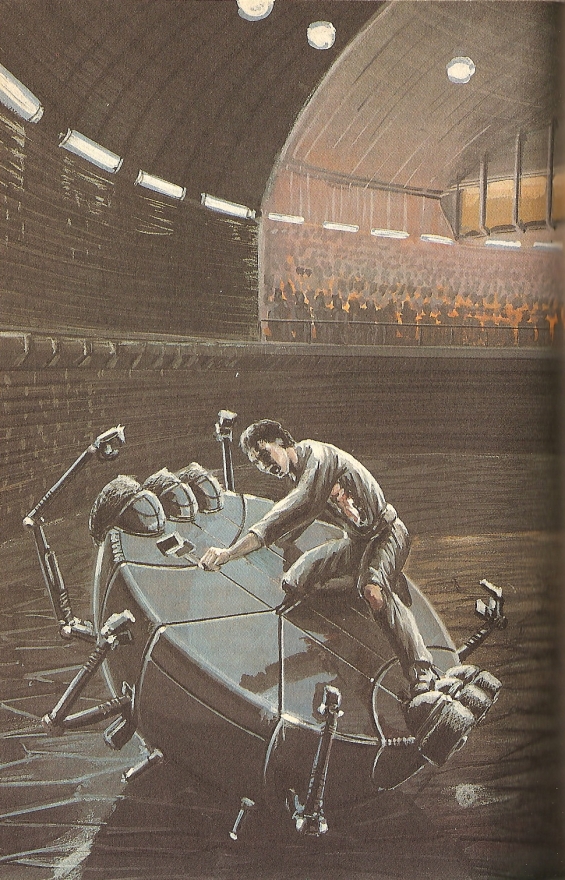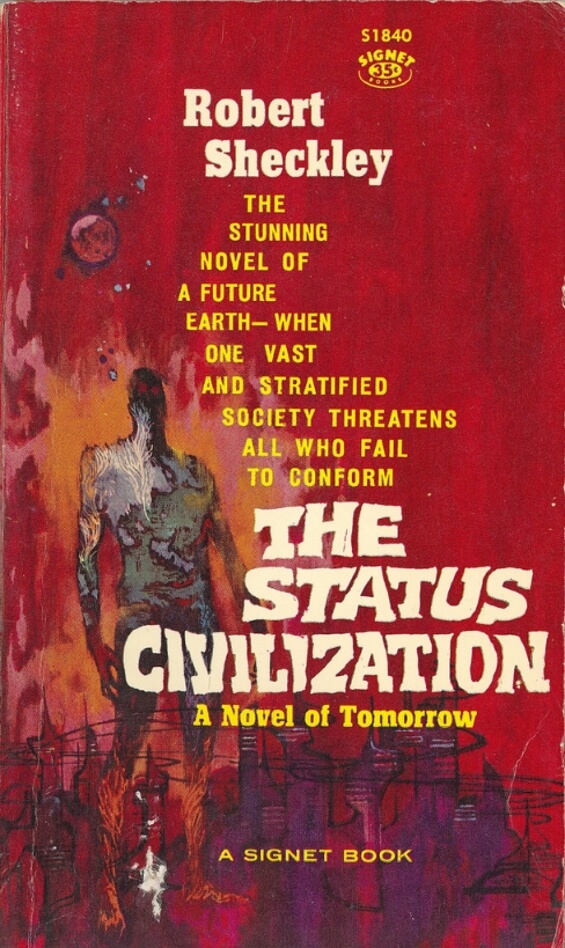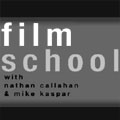
 The SFFaudio Podcast #121 – Scott, Jesse, Tamahome and Gregg Margarite talk about Joe Haldeman’s novel Forever Peace.
The SFFaudio Podcast #121 – Scott, Jesse, Tamahome and Gregg Margarite talk about Joe Haldeman’s novel Forever Peace.
Talked about on today’s show:
The Forever War, Forever Peace, Forever Free, Haldeman’s experiences in South-East Asia (during the Vietnam War), William Mandella, Mandala, Julian Class, Philip Klass (William Tenn), racism, remotely controlled soldier robots, jacks, empathy, sharing menstruation, baldness as a fashion, the nanoforge (a molecular nanotechnology), caper, Stranger In A Stranger Land, heist, “two novellas smushed together”, John W. Campbell, Ben Bova, self help groups, one conceit that remains unexamined, magic machine (aka a sub-atomic replicator), Mack Reynolds, telepathy, asymmetric warfare, prescience, Libya, Pakistan, the two peaces of Forever Peace, what of the aftermath?, applying Isaac Asimov’s Three Laws of Robotics to people, Gregg is a creature capable of killing, not everyone wants to be the black sheep, is 98% of humanity humanizable?, the earth where everyone is gay, the earth where everyone is a clone, “a giant of SF”, The Memory Of Earth by Orson Scott Card, The Moon Is A Harsh Mistress, do you grok the group?, “The Hammer of God”, Jonestown, David Koresh, a religion that requires you believe in evolution, punctuated equilibrium, treating the bible like a science book (is problematic), we’re gonna drill into you brain and then you won’t have those feelings anymore, a utopian dystopia, Malthusian theory, the singularity, A Clockwork Orange, moral conviction vs. physical restriction, Gregg needs his murderer (and we do too), Starship Troopers, false consciousness, Women’s Studies, The Tea Party,
“False consciousness is the Marxist thesis that material and institutional processes in capitalist society are misleading to the proletariat, and to other classes. These processes betray the true relations of forces between those classes, and the real state of affairs regarding the development of pre-socialist society”,
following orders (as false consciousness), Stockholm syndrome, identifying with your oppressor, why do people do things that are against their own interests?, Costa Rica, withholding technology vs. holding resources hostage, Plato’s cave, “from each according to his ability, to each according to his need”, is Jesse making an argument for absolute truth?, what is truth?, “one person’s murder is another person’s dinner”, “God exists or he doesn’t exist”, “assuming we agree on the definition of God”, “we have a bedrock of truth”, Aristotle’s law of non-contradiction, “we’re here and we’re invading your software”, our perception of reality changes, “how can it not always be this way?”, “it’s The Matrix“, Gregg can find reasonable doubt in his own existence, Cogito Ergo Sum (I think therefore I am), René Descartes, “I doubt therefore I am”, Tama has no take, good and bad vs. right and wrong, a mass of conflicting impulses (ambivalence), Heinlein’s militaristic thinking vs. Haldeman’s militaristic thinking, Heinlein’s Future History series, religious conversion, telepathy vs. total immersion, Jonathan Swift, “you can’t reasons someone out of something they weren’t reasoned into”, there are two tenets in Greggism, what you believe doesn’t has to be true, Alan Moore’s personal made-up religion, Scott isn’t a Catholic because of feeling alone, Joseph Campbell “everything is true”, “he was born with a plowshare”, magical thinking, “that’s true for you and that’s fine”, a religious wacko who wants to end the world seems like a tired villain, Source Code, Moon is fantastic (but Source Code is not), the Norwegian whack job, can’t we find another kind of religion, Carl von Clausewitz, The Operative from Serenity (played by Chiwetel Ejiofor), effective villains, Robert E. Lee, Adolph Hitler vs. Joseph Stalin vs. Mao Zedong, the Tehran Conference, “Uncle Joe”, Stalin’s ending was noir, Pandora’s Star by Peter F. Hamilton has a great (and dirty) villain, Orson Scott Card’s Buggers, Speaker For The Dead, Ender’s Game, zombies are like a force of nature, Heinleinian villains are not diabolical, the ultimate orbital platform, the English Empire, “besides we’re better than you”, why do English actors always play villains? American accents = movie stars, Vancouver is a science fiction ghetto, iambk audio, the proper pronunciation of “about” in Canada, shock vs. shark, accents are lazy ways of speaking, George Wilson (the narrator of Forever Peace), P.G. Wodehouse, Bertie and Jeeves, the secret language of (drunken) Cockneys, no stupid voices please (in audiobooks), if you hire Nicholson for you movie your movie is a Jack Nicholson movie, Gregg’s signature voice may lose him work, why does the narrative switch between first and third person throughout Forever Peace, Yes, Minister, Goodreads.com, senior civil servant (3rd person) vs. elected official (1st person), The Long Habit Of Living by Joe Haldeman, The Forever War is told in first person (right?)
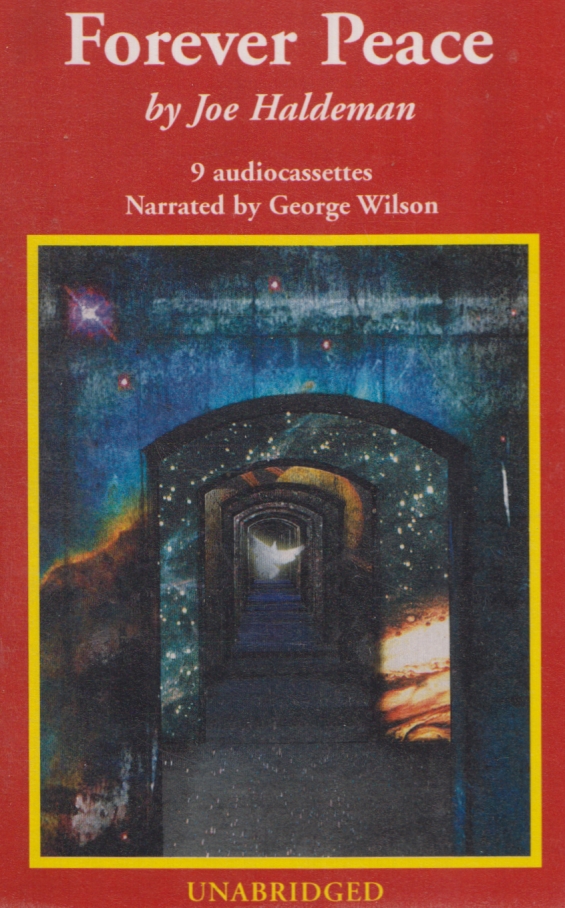
Posted by Jesse Willis

